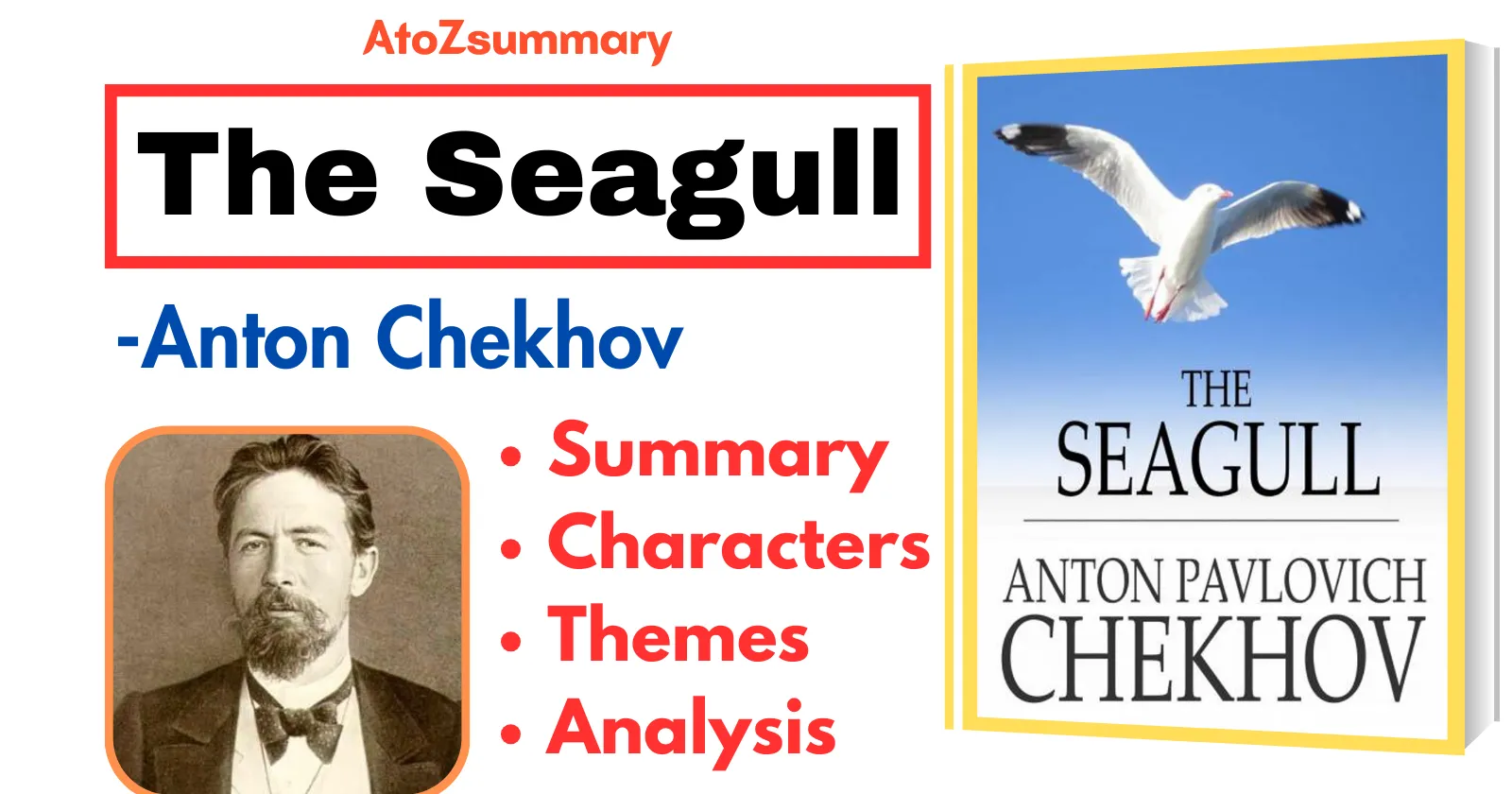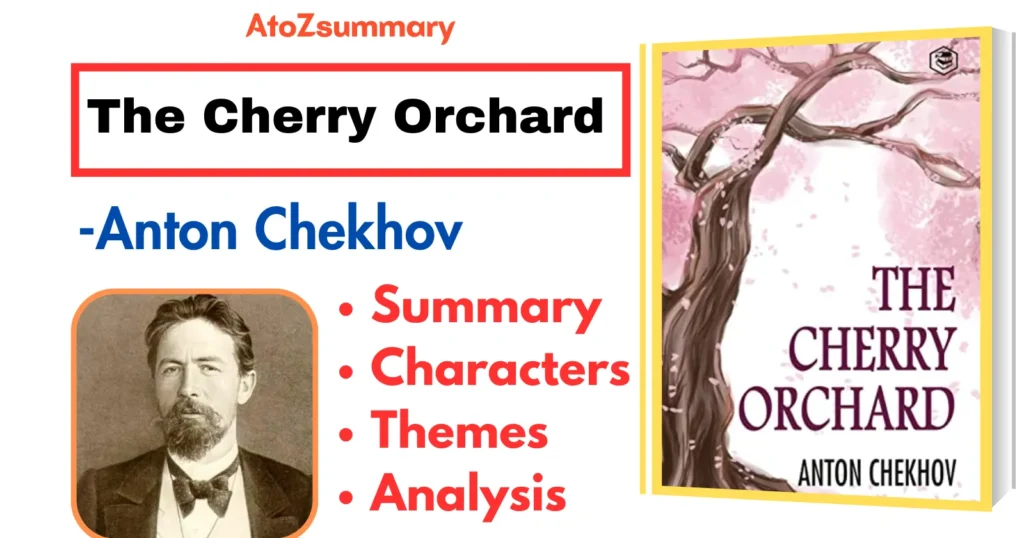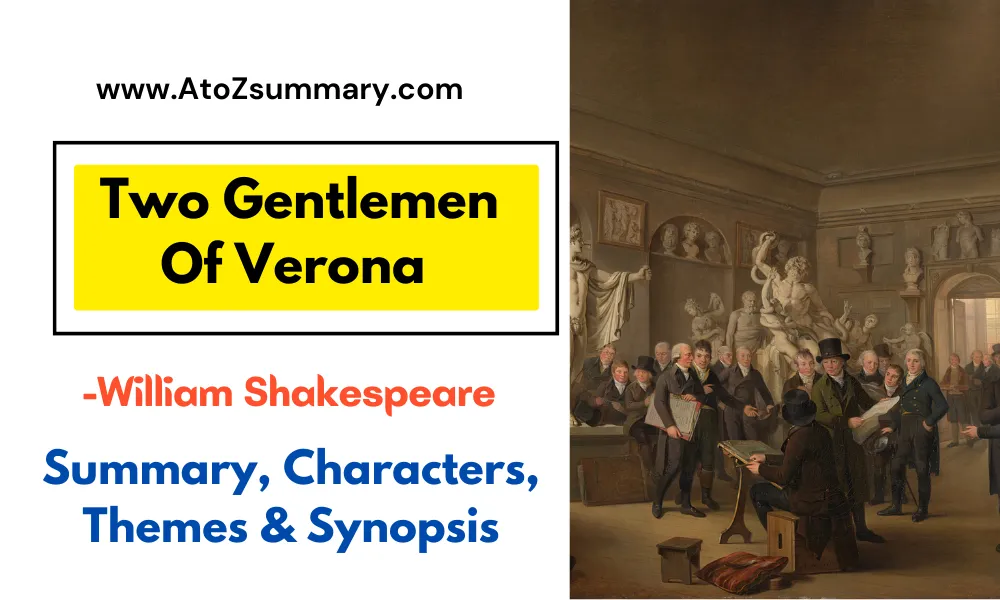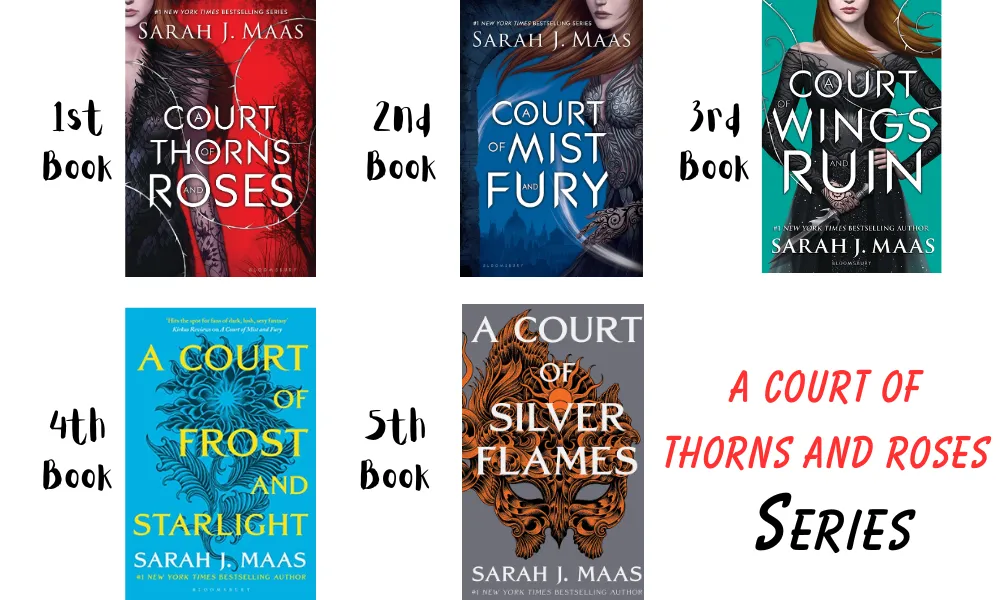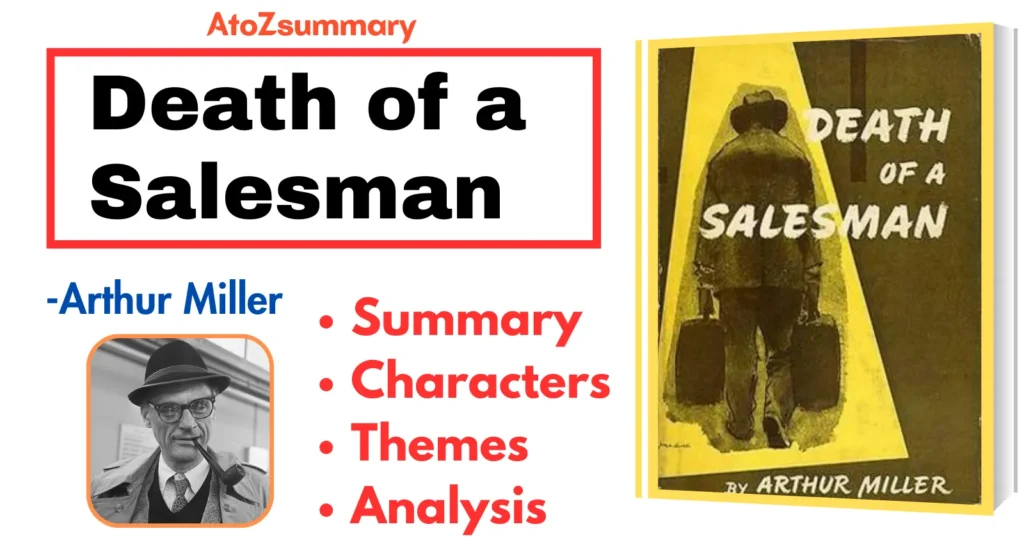About the Play: The Seagull
| Title | The Seagull |
|---|---|
| Playwright | Anton Chekhov |
| Date of Completion | 1895 |
| Date of First Performance | October 17, 1896 |
| Setting | A country estate in Russia |
| Genre | Tragicomedy, Realism |
| Language | Originally written in Russian, translated into various languages. |
Analysis: The Seagull
“The Seagull” by Anton Chekhov is a classic play that explores the complexities of human relationships and the pursuit of artistic fulfillment. Set in a rural estate, the play revolves around the lives of artists, writers, and their associates. The characters grapple with unrequited love, jealousy, and the challenges of expressing themselves creatively.
The title symbolizes the unattainable desires of the characters, much like the elusive seagull. The play is known for its blend of comedy and tragedy, showcasing the absurdities of life and the human condition. Chekhov’s keen observations of human behavior and his ability to capture the nuances of everyday life make “The Seagull” a timeless exploration of the human experience.
Characters: The Seagull
The characters of “The Seagull” by Anton Chekhov are:
- Konstantin Treplyov: A passionate and aspiring playwright, he’s in love with Nina. Struggles with his relationship with his mother, Irina.
- Nina Zarechnaya: A young and ambitious actress, initially in love with Konstantin. Her dreams of fame and success drive her actions.
- Irina Arkadina: Konstantin’s mother and a famous actress. Self-centered and concerned with her own success, she has a complicated relationship with her son.
- Boris Trigorin: A successful writer and Irina’s lover. His relationship with Nina complicates the dynamics of the play.
- Masha: The daughter of the estate manager, she is in love with Konstantin but married to Medvedenko. She struggles with unrequited love and uses alcohol to cope.
- Pyotr Sorin: Irina’s brother and owner of the estate. He’s a retired civil servant and yearns for a more fulfilling life.
- Medvedenko: A schoolteacher and Masha’s husband. He loves Masha deeply but feels unfulfilled due to his financial struggles.
- Yakov: A worker on the estate. He represents the lower class and is focused on his labor.
Themes: The Seagull
The themes of “The Seagull” by Anton Chekhov are:
- Unrequited Love: The play explores the complexities and pain of unfulfilled romantic feelings among the characters.
- Artistic Struggles: The challenges and sacrifices faced by artists in their pursuit of creative expression and success.
- Generational Conflict: The clash between older and younger generations, highlighting differences in values, beliefs, and aspirations.
- Seeking Meaning in Life: Characters grapple with existential questions, searching for purpose and fulfillment in their lives.
- Irony and Humor: Chekhov uses irony and humor to comment on the absurdity and unpredictability of life and human behavior.
- Social Critique: The play subtly critiques the societal norms and expectations that constrain individuals and their relationships.
- Isolation and Loneliness: The theme of isolation is prevalent, depicting characters who feel disconnected and alone despite their interactions.
- Nature as a Symbol: The seagull serves as a symbolic representation, reflecting the characters’ desires, aspirations, and the fleeting nature of life.
- Failed Communication: The play explores the challenges and consequences of miscommunication and the inability to express one’s true feelings.
- Emotional Turmoil: Characters experience intense emotional turmoil, highlighting the fragility of human emotions and relationships.
Watch Full Play Summary of “The Seagull”
The Seagull Summary
The drama has been written by Konstantin, the legendary actress Arkadina’s son. It will be held outside on his uncle Sorin’s property, featuring Nina, the person Konstantin is in love with. As the local schoolteacher Medvedenko, who is in love with Masha, waits for Konstantin’s performance to start, he asks her why she wears black everything. Masha is in sorrow for her life since she is in love with Konstantin.
Konstantin elaborates on his desire for “new forms” in the theater as Sorin and he arrives and discuss the monotony of the nation. Konstantin is thrilled with the impromptu theater he had Yakov and the laborers construct for him in the garden. When Konstantin and Sorin discuss Konstantin’s mother Arkadina, Konstantin expresses his opinion that he and his mother represent quite distinct theatrical traditions and that he wants to be a well-known writer.
Switching the topic, Sorin inquires about Arkadina’s new partner, Trigorin, to whom Konstantin appears uninterested. Trigorin is a well-known author. Nina shows up and queries Konstantin regarding Trigorin. She doesn’t directly return Konstantin’s declaration of love. Nina informs Konstantin that his play lacks motion and live people, making it more akin to a recital.
After a few words from Hamlet are quoted by Arkadina and Konstantin, the play starts with the characters gathered to see it. Wearing all white, Nina sits on a stone and delivers a monologue about a post-apocalyptic future where everyone’s souls have united into one. Arkadina breaks up the play with comedic asides until Konstantin snaps pulls down the curtain, and leaves. Arkadina becomes enraged that Konstantin is attempting to provide her with “an object lesson” in acting and writing after Sorin chastises her for being callous.
Arkadina takes the lead as she recalls earlier times when Dorn, the neighborhood physician, was the charming “leading man” of the lakefront. Masha departs in search of Konstantin, and Dorn has the laborer Yakov raise the curtain. When Nina arrives, Trigorin informs her that he didn’t get the play, and she leaves to get home. When Dorn returns, he tells Konstantin that he enjoyed the performance, touching him profoundly. Dorn is left alone. Writing must have specific goals, according to Dorn. When the curtain closes, Masha makes her appearance as Konstantin leaves and declares her love for him to Dorn.
The second act opens with Arkadina leading a debate regarding who appears younger, Masha or Arkadina. Arkadina makes sure the decision is to her advantage. Since her parents are gone for a few days, Nina enters with Sorin and is left to her own devices. Following a disagreement about carriage horses between Arkadina and Shamrayev, Sorin’s estate manager and Masha’s father, Arkadina storms off, declaring she will head straight for the town.
As Shamrayev’s wife Polina approaches Dorn romantically, Sorin leaves to convince Arkadina to stay. When he ignores them, she becomes enraged. Nina, left on stage by herself as Dorn and Polina leave, wonders about the peculiarities of Trigorin and Arkadina, two well-known figures. Nina is given a shot seagull by Konstantin, who enters and places it at her feet. She is unaware of its symbolic meaning. Trigorin walks in and starts taking notes for a piece on Masha. They start talking about the challenges of writing and being creative. Trigorin acknowledges he is not in the same category as Tolstoy or Turgenev and characterizes writing as a more or less pointless passion.
Trigorin gets an inspiration for a tale about a guy who arrives and smashes a little girl rather carelessly when he sees Konstantin’s seagull. Then Arkadina arrives to tell Trigorin via a window that they will be staying.
Act 3 opens with Masha sharing her life narrative with Trigorin, obviously hoping that he would write a novel out of it eventually. She is still in love with Konstantin, but she has resorted to drinking and made the decision to wed Medvedenko. Since Act 2, Konstantin has made suicide attempts, as we find out.
Nina gives Trigorin a medallion with the title of his book and his initials etched on it. Trigorin studies the medallion after getting out and finds the following inscription: “Days & Nights, page 121, lines 11 and 12.” He dashes out to get a copy of his book so he can figure out which passage Nina is referring to.
As Sorin and Arkadina converse about Konstantin, Sorin suggests that Arkadina give Konstantin some cash. She declines. Konstantin comes after Sorin leaves and requests that Arkadina give Sorin some cash. She declines. After that, Arkadina applies a bandage on Konstantin’s head, and they reminisce about Konstantin’s early years. Before long, their conversation turns into a fight that breaks Konstantin’s heart. As Arkadina takes Trigorin away, she assures Konstantin that Nina will come back to him and he will be content once more. Konstantin walks out.
Trigorin walks in. Though he keeps it a secret from Arkadina, he has found the sentence Nina mentioned: “If ever you need my life, then come and take it.” Next, Trigorin and Arkadina speak, and it is via flattery that she convinces him to stay with her. Arkadina’s group departs for the town after successfully persuading Trigorin, but at the last second Trigorin returns to get his stick. After Nina meets him, they make plans to meet in a hotel in Moscow, where they kiss as the curtain rises.
Act 4 begins after a gap of two years. The scenario is at Sorin’s home in a room that is now Konstantin’s study. As a writer, Konstantin has now been published and is well-known. Now that they are married, Medvedenko leaves to take care of their child at home.
Masha is still cruelly hanging out with Konstantin, while Sorin’s mother is making a bed in the room for him. We find out that Nina gave birth to a dead kid, went on to become a terrible actress, and is now back in her hometown after being abandoned by her parents. As Arkadina and Trigorin arrive, Trigorin presents a magazine with an article written by Konstantin, who is now a published writer. In the center of the room, a card table is put up, and once everyone becomes comfortable playing the lottery, Konstantin leaves.
During his absence, we get several perspectives on his writing: Shamrayev mentions that he receives negative feedback, Trigorin thinks he hasn’t yet developed his style, Dorn says he likes his stories, and Arkadina says she hasn’t read any of them. When everyone leaves for dinner, Konstantin is left alone in the room and speaks eloquently about his desire for new shapes.
Nina bangs on the glass and comes in. She pretends to be “the seagull” throughout their tense argument, and then she leaves. After tearing up his documents, Konstantin leaves. Shamrayev displays the stuffed bird that Konstantin shot back in Act 2 as everyone returns. There’s a loud noise off-stage, and Dorn rushes out to check after informing everyone that an ether bottle has exploded. When he returns, he leads Trigorin aside and orders him to remove Arkadina from the room since Konstantin had shot himself.
The play concludes with various characters reflecting on their unfulfilled desires and relationships. Konstantin’s mother, the actress Irina Arkadina, continues her self-centered pursuits, while Konstantin and his former love interest, Nina Zarechnaya, face challenges and disappointments. The ending reflects the themes of unrequited love, the struggles of artists, and the cyclical nature of life’s difficulties, leaving the audience with a sense of the characters’ unresolved conflicts and the complexity of human emotions.
FAQs
What is the story seagull about?
“The Seagull” is about love, jealousy, and the challenges faced by artists in expressing themselves.
What is the message in The Seagull?
The Seagull reminds us that the pursuit of fame and artistic recognition can lead to disillusionment and unhappiness.
Is The Seagull a tragedy?
Yes, The Seagull is a tragedy about love, loss, and unfulfilled dreams.
Why was the whole family taunting the seagull?
The family taunts the seagull to encourage it to overcome its fear and learn to fly.
Who does Masha marry in The Seagull?
Masha weds Medvedenko in The Seagull by Anton Chekhov.
What incident resulted in the seagull making his first flight?
The seagull made its first flight when Konstantin shot it, symbolizing the characters’ struggles and the fleeting nature of dreams.
Why did the seagull’s mother halt?
The seagull’s mother halts to tempt her young one to fly.
What was the pilot not sorry about?
The pilot in The Seagull was not sorry about scaring Nina by shooting the seagull because he was just doing his job.
What was the seagull afraid of?
The seagull was afraid of being shot by a gun.
Why did the seagull’s father and mother threaten him?
They wanted him to overcome his fear and become independent.
What happens to Masha at the end of The Seagull?
Masha marries Medvedenko but her unrequited love for Konstantin remains strong.
What happens at the end of The Seagull?
At the end of “The Seagull,” Konstantin attempts suicide, highlighting the struggles and unresolved conflicts among the characters.

